Active Member
Kristopher M. Day, MD, FACS
Kristopher M. Day, MD, FACS is an award-winning double board-certified plastic and reconstructive surgeon serving the Bellevue, Seattle, and Pugent Sound, Washington areas. Dr. Day specializes in plastic surgery of the face, breast, and body, with a primary focus on aesthetic and cosmetic procedures. His practice also offers a full array of non-surgical enhancement options. He is a leader in his field and member of many professional organizations, editorial boards, and service committees.
Schedule A Consultation
Meet Dr. Kristopher Day
Pacific Sound Plastic Surgery, led by double board-certified plastic and reconstructive surgeon Dr. Kristopher M. Day, offers a full range of advanced aesthetic and reconstructive procedures to patients in the Bellevue and Seattle areas. The practice is dedicated to enhancing natural beauty and restoring form and function through personalized, patient-centered care.
Specializing in plastic surgery of the face, breast, and body, Dr. Day and his team provide expert surgical solutions for those seeking aesthetic enhancement, post-traumatic reconstruction, or correction of congenital conditions. Common procedures include facelifts, rhinoplasty, breast augmentation and reconstruction, body contouring, and skin cancer reconstruction, among others.
Pacific Sound Plastic Surgery also features a full-service medical spa, offering non-surgical treatments such as Botox®, dermal fillers, and advanced skin rejuvenation services. These minimally invasive options complement surgical results and provide patients with flexible treatment paths to meet their goals.
All surgical procedures are performed in a certified ambulatory surgical center, prioritizing patient safety, comfort, and privacy. Dr. Day’s commitment to excellence is reflected in his board certifications in plastic and reconstructive surgery and his active memberships in the American Society of Plastic Surgeons (ASPS) and the American College of Surgeons (ACS).
Whether you're considering a cosmetic procedure or require reconstructive care, Pacific Sound Plastic Surgery offers cutting-edge expertise, compassionate guidance, and natural-looking results tailored to each individual.
Facilities
Patient Testimonials
⭐⭐⭐⭐⭐ "Dr. Kristopher Day is amazing. I got a tummy tuck 3 weeks ago its the best decision I've ever made going to him. Would never go to any other person for a cosmetic surgery. He does such wonderful work. Very thorough with everything. It's been 3 weeks post opp and I feel amazing.I will be getting breast augmentation done in a couple weeks with Dr Day. I would 100% recommend him. Also his assistant Sophia was very sweet and helpful." - Ash Chipres
⭐⭐⭐⭐⭐ “Absolutely love my results from my Botox injected by Dr. Day! I am so pleased with my experience. 10/10, highly recommend!” – Allyson Evers
⭐⭐⭐⭐⭐ "I was very nervous and anxious about Botox... he made me feel at ease. Great job with my injections—no bruising or any issues." – Whitney G.
Procedures Performed
Aesthetic Genital Plastic Surgery
Arm Lift
Body Contouring
Body Lift
Botulinum Toxin
Breast Augmentation
Breast Implant Removal
Breast Implant Removal
Breast Implant Revision
Breast Lift
Breast Reconstruction
Breast Reduction
Breast Reduction
Brow Lift
Burn Reconstruction
Buttock Lift with Augmentation
Cheek Augmentation
Cheek Reduction
Chin Augmentation
Chin Surgery
Cleft Lip and Palate Repair
Craniosynostosis
Dermal Fillers
Deviated Septum Correction
Ear Reconstruction Surgery
Ear Surgery
Eyelid Ptosis Repair
Eyelid Surgery
Facelift
Facial Implants
Free Flap Breast Reconstruction
Gender Affirmation Surgery
General Reconstruction
Giant Nevi Removal
Hand Surgery
Hand Surgery for Congenital Differences
Head and Neck Cancer Reconstruction
Head and Neck Skin Cancer Reconstruction
Injectable Fillers
Laser Skin Resurfacing
Lip Augmentation/Enhancement
Liposuction
Male Breast Reduction
Microdermabrasion
Microsurgery
Migraine Surgery
Mommy Makeover
Neck Lift
Neural Regeneration
Orthognathic Surgery
Panniculectomy
Post Burn Reconstruction
Rhinoplasty
Scar Revision
Skin Cancer Removal
Skull/Facial Bone Reconstruction
Surgery for Genitourinary Diseases
Thigh Lift
TRAM Flap Breast Reconstruction
Tummy Tuck
Vascular Malformations
Wound Care
Ask a Surgeon
Dr. Kristopher Day participates in the ASPS Ask A Surgeon service. View responses to public questions below.
Revision Mastopexy
Breast LiftMember Response:
It depends on a few factors, including the duration of time since your original mastopexy. Best to have the information. Also, FYI, there are requirements for your chart to be provided to you after requesting it, so that should be standard practice
Revision Mastopexy
Breast LiftMember Response:
It depends on a few factors, including the duration of time since your original mastopexy. Best to have the information. Also, FYI, there are requirements for your chart to be provided to you after requesting it, so that should be standard practice
Forhead reduction, damaged nerves
Facial FeminizationMember Response:
There are actually nerves that run from the top of the eye to the scalp, thus through the forehead, for sensation. These sometimes have to be cut in order to do the type of procedure you sound to be describing. And nerves are slow to recover. I usually say up to 6-12 months, but could potentially be longer. So on first hearing, this sounds like a relatively normal phenomenon post-operatively and something your surgeon is advising you about correctly.
Lump on forehead
Wound CareMember Response:
Yes, you may have a calcified hematoma or even a bony hypetrophy at the site of your previous trauma. These are both treatable. I would see a board-certified plastic and reconstructive surgeon in your area to discuss your options
What is wrong with my eyes and what is the solution?
Eyelid SurgeryMember Response:
You are rather young and without extensive age-related deformity to probably suggest a blepharoplasty, or eyelid lift, but there are sometimes very nice results after peri-ocular fractional CO2 laser treatments and combination with tretinoin and hyaluronic acid topicals. That is what I would probably first discuss with you. Maybe reach out to a plastic surgeon in your area to discuss some options
What procedure to make my upper teeth more visible to improve my smile?
Lip Augmentation/EnhancementMember Response:
There are multiple options, each with different levels of cost, efficacy, and duration of result. They would include a gullwing lip lift, dermal fillers, lip flip, and lip implants. I would recommend you discuss these and pros and cons with a board-certified plastic surgeon in your area
Fat transfer to breast
Breast AugmentationMember Response:
I've actually had a very similar patient consultation to this. The key, in my opinion, is to involve your rheumatologist in the decision-making and preoperative testing to see what control your RA is under, what medications you may need to hold and for how long, and what the risk-benefit trade-offs are for whether that will risk a flare or surgical complications. Then, like really all elective procedures, it will boil down to a risk-benefit discussion with your surgeon and joint decision. As for "healthier" for fat transfer or saline implants, I do not believe there is a great difference there, just trade offs between what each can achieve, recovery process, downstream risks, etc... Either are likely reasonable options for you with proper precautions and planning
Billing question
Eyelid SurgeryMember Response:
There are typically policy statements that you will agree to prior to elective plastic surgery procedures. Either way, it sounds like this was an unexpected and urgent complication that required a quick surgical response. It is your safety that was most important. If you were helped by these actions and they were warranted by the clinical condition, and it was a separate procedure from your original surgery, then it would make sense to me that services would be billed. You may not realize this, but the hospital would almost certainly bill your insurance (and for a greater sum than your surgeon) regardless of whether your surgeon submitted a bill or not. I am not a lawyer, but reimbursement for neessary surgical services appropriately delivered to a patient in need - whether anticipated or not - sounds quite ethical.
Lifetime risk of breast cancer
Breast ReconstructionMember Response:
This a good and straightforward question, but probably has a less straightforward answer than you might expect. There are multiple factors that compute into a person's estimated lifetime risk of breast cancer, including personal history, family history, genetics, and others. However, to my knowledge, there is no insurance numerical risk percentage that assures approval or denial. Most often this situation involves a discussion with your plastic surgeon for risks versus rewards after consideration and referral from a primary care doctor, often also involving a breast surgeon and geneticist.
Lifetime risk of breast cancer
Breast ReconstructionMember Response:
This a good and straightforward question, but probably has a less straightforward answer than you might expect. There are multiple factors that compute into a person's estimated lifetime risk of breast cancer, including personal history, family history, genetics, and others. However, to my knowledge, there is no insurance numerical risk percentage that assures approval or denial. Most often this situation involves a discussion with your plastic surgeon for risks versus rewards after consideration and referral from a primary care doctor, often also involving a breast surgeon and geneticist.
Do I have an over-projected chin/jaw?
Facial FeminizationMember Response:
Your chin looks somewhat prominent on the lateral view, though a full view would be necessary to asses well. A set-back genioplasty, or chin bone reduction surgery is an option to address this after consultation with a board-certified plastic surgeon that performs facial bone procedures.
Facial mole removal on infants
Giant Nevi RemovalMember Response:
Good questions. For more "routine" procedures that do not present a significant risk for delay, often 6 months or older are milestones that pediatric patients need to be, at least in the opinion of many anesthesiologists. Obviously, this is just a snapshot, but if this lesion is followed by your pediatrician and doesn't change, then there is likely time to wait with no impetus to proceed as soon as possible to the operating room. There are non-operative or less invasive approaches, though they do not provide as much tissue information (pathology). I would recommend you discuss options and timeline in a consultation with a board-certified plastic surgeon.
Any pro bono surgeons near Portland Oregon?
RhinoplastyMember Response:
I agree with Dr. Gerzenshtein. It may not be what you want to hear, but as much as we generally enjoy helping people, there are significant costs to surgeons to perform operations, not to mention the time and effort spent to develop the skill to have to offer patients, such as yourself. So I would encourage you to either see a resident aesthetic surgery clinic at a nearby university, as was suggested, or explore financing options such as Care Credit to navigate the costs associated with quality plastic surgery. Hope you find what you are seeking.
Liposuction on Outer Thighs
LiposuctionMember Response:
Agree with the other surgeons. This is quite soon after surgery to judge. There are things you can do, such as following your compression garment recommendations, home massage, lymphatic massage, and arnica gel. But time will likely beget improvement. Stay in touch with your surgeon if you do not see improvement, but allow weeks to months.
Replace Implants
Breast Implant RevisionMember Response:
No reason to do capsulectomy based on what you convey. Also, there are multiple options (including site change to under muscle) to address the rippling problem. Size change with form-stable cohesive implants, fat grafting, and mesh/biomaterials can all be used in some fashion, depending on the specifics of your situation. You'll want to flesh these options out in a consult with a board-certified plastic surgeon.
Insurance Coverage for Capsular Contracture/Breast Implant Illness
Breast Implant RevisionMember Response:
Both doctors are giving you good advice. It's not what most patients want to hear with capsular contracture after previous breast augmentation (assuming that is the case here), but it requires an out-of-pocket revision surgery, usually with sub-total capsulectomy and implant removal, to treat this. Best wishes, and hope you find the care you are looking for.
Scarring caused by breast uplift - can surgery remove it?
Breast ReconstructionMember Response:
If you had a significant reduction, then that tissue could likely be removed during that procedure, possibly even during a revision breast lift. You would want to have a complete consultation with a board-certified plastic surgeon to ensure your goals are achievable. Best wishes.
Consultation
Male Breast ReductionMember Response:
You simply search for one in your area on this website! Good luck.
Ruptured Silicone Implant
Breast Implant RevisionMember Response:
I think both replies share a lot of good information. There was actually a recent study in which a surgeon simulated the force from a car crash and showed that silicone breast implants hold up even under that degree of force. So I would echo being cautious about using the word "caused." There are ways to get revision cosmetic breast implant financial assistance with what are effectively credit cards for this purpose, or, as mentioned, exploring options under the implant's warranty. Your next step would be to speak with a board-certified plastic surgeon. Hope that helps.
Deoxycholic acid for gynecomastia
Male Breast ReductionMember Response:
Kybella is FDA-approved for dissolving fat of the neck, where this effect is perhaps most noticeable. Despite this, it is known for often requiring repeat treatment. So the use of Kybella for this purpose would likely not be effective (and off-label). I recommend a consultation with a board-certified plastic surgeon.
Before and after patient photos from Dr. Kristopher Day. Use the menu to filter by procedure.
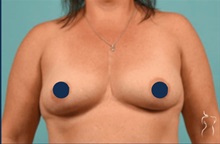
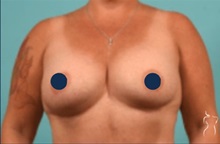
Breast Augmentation
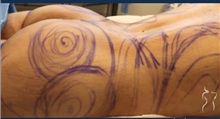
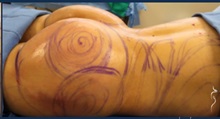
Buttock Lift with Augmentation
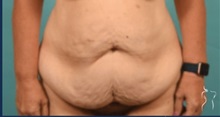
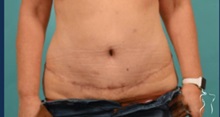
Tummy Tuck
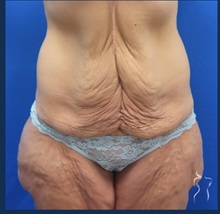
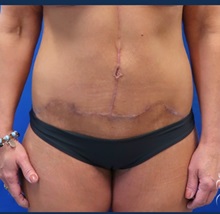
Body Lift
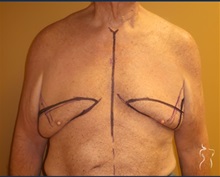
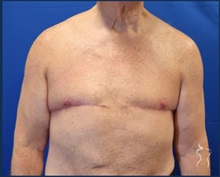
Body Contouring
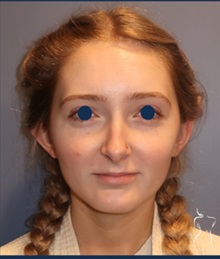
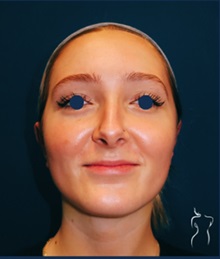
Ear Surgery
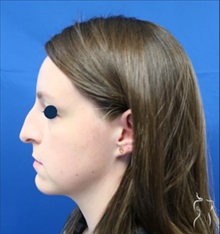
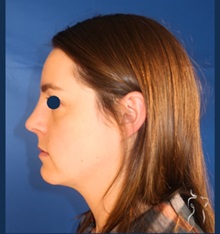
Rhinoplasty
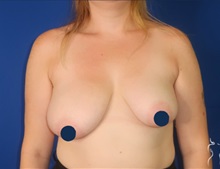
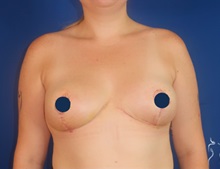
Breast Lift
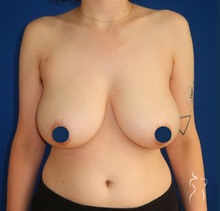
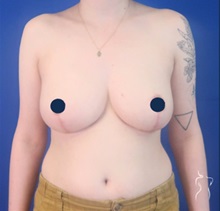
Breast Reduction
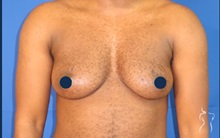
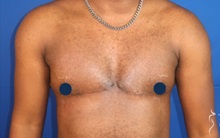
Body Masculinization
Payment Options
- Cash or Personal Checks
- HMO/PPO/Other Insurance
- Medicaid
- Medicare
- Patient Financing
- Blue Cross Blue Shield
- United Healthcare
- Regeance Blue Cross
- Medicare
- Multicare
- Wellcare
- Providence Health Plan
- Cigna
- Humana
- Optum Health
- Tricare
- LifeWise
- AmeriGroup
- Meritain Health
- Community Health Plan of Washington
- Aetna
- Aetna
- PacificSource Health Plans
- Mercy Care
Patient Testimonials
⭐⭐⭐⭐⭐ "Dr. Kristopher Day is amazing. I got a tummy tuck 3 weeks ago its the best decision I've ever made going to him. Would never go to any other person for a cosmetic surgery. He does such wonderful work. Very thorough with everything. It's been 3 weeks post opp and I feel amazing.I will be getting breast augmentation done in a couple weeks with Dr Day. I would 100% recommend him. Also his assistant Sophia was very sweet and helpful." - Ash Chipres
⭐⭐⭐⭐⭐ “Absolutely love my results from my Botox injected by Dr. Day! I am so pleased with my experience. 10/10, highly recommend!” – Allyson Evers
⭐⭐⭐⭐⭐ "I was very nervous and anxious about Botox... he made me feel at ease. Great job with my injections—no bruising or any issues." – Whitney G.
⭐⭐⭐⭐⭐ "I've had Botox a number of times, but whatever Dr. Day is doing differently has made this the most effective and impactful treatment!" – Aimee
⭐⭐⭐⭐⭐ “This is the best Botox experience I've had around Seattle... supportive of individual decision-making. Highly recommended!” – Brenna Boyd
⭐⭐⭐⭐⭐ "Dr. Day performed two surgeries for me. Surgery can be scary, but both times he made sure to explain the procedure, the expected recovery, answer all questions, and put my mind at ease. My wife has seen my successes with Dr. Day, and is excited to become his patient as well." - Garrett Soames
⭐⭐⭐⭐⭐"The staff was friendly and professional. Dr.Day Was thorough, straight to the point and clear. The procedure was painless, and the healing is going nicely!"- Clifford Dang
⭐⭐⭐⭐⭐ “Dr. Day is a gift straight from heaven. He turned back the clock of time at least 10 years... He's kind, compassionate, knowledgeable and gentle.” – Lynette Schell
⭐⭐⭐⭐⭐ "I want to share my review with anyone who might be overwhelmed with the process of finding an exceptional and highly qualified surgeon to improve their appearance, regardless of how simple or complex, Dr. Kristopher Day is that doctor. After interviewing with two other well known doctors, whom are also double Board Certified in Aesthetic Plastic Surgery among numerous other Societies, Dr. Day was my top choice and won my complete confidence hands down!! Thank you Dr. Day as well as Dr. Gold, your talented Anesthesiologist, and of course, Sophia in the front office. Thank you all for your outstanding work!" - Carole McDowell
⭐⭐⭐⭐⭐ "Dr. Day is excellent with injections... he made the entire process comfortable and as painless as it gets. Highly recommend him!" – Erica Bee
⭐⭐⭐⭐⭐ "Very easy and professional experience with Dr.Day and team. Good consulting on the right levels without pushing or upselling. Fast and efficient too." - Shanna Cour
⭐⭐⭐⭐⭐ "I had a fantastic experience with Dr. Day and his team for breast reduction. He took me from a 32F to 32B, which is exactly what I wanted! This surgery has been completely life changing for me and resolved chronic back, neck, and shoulder pain I’ve had for years. Dr. Day and his team provided expert individualized care from the initial consultation through post-op check ups. I’m so happy that I got care at Pacific Sound Plastic Surgery, and I would recommend him to anyone." - Jess MacKimm